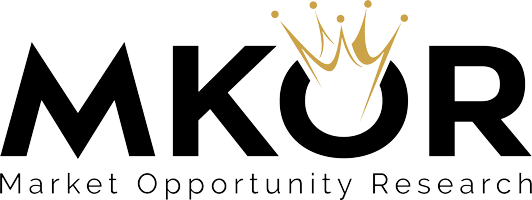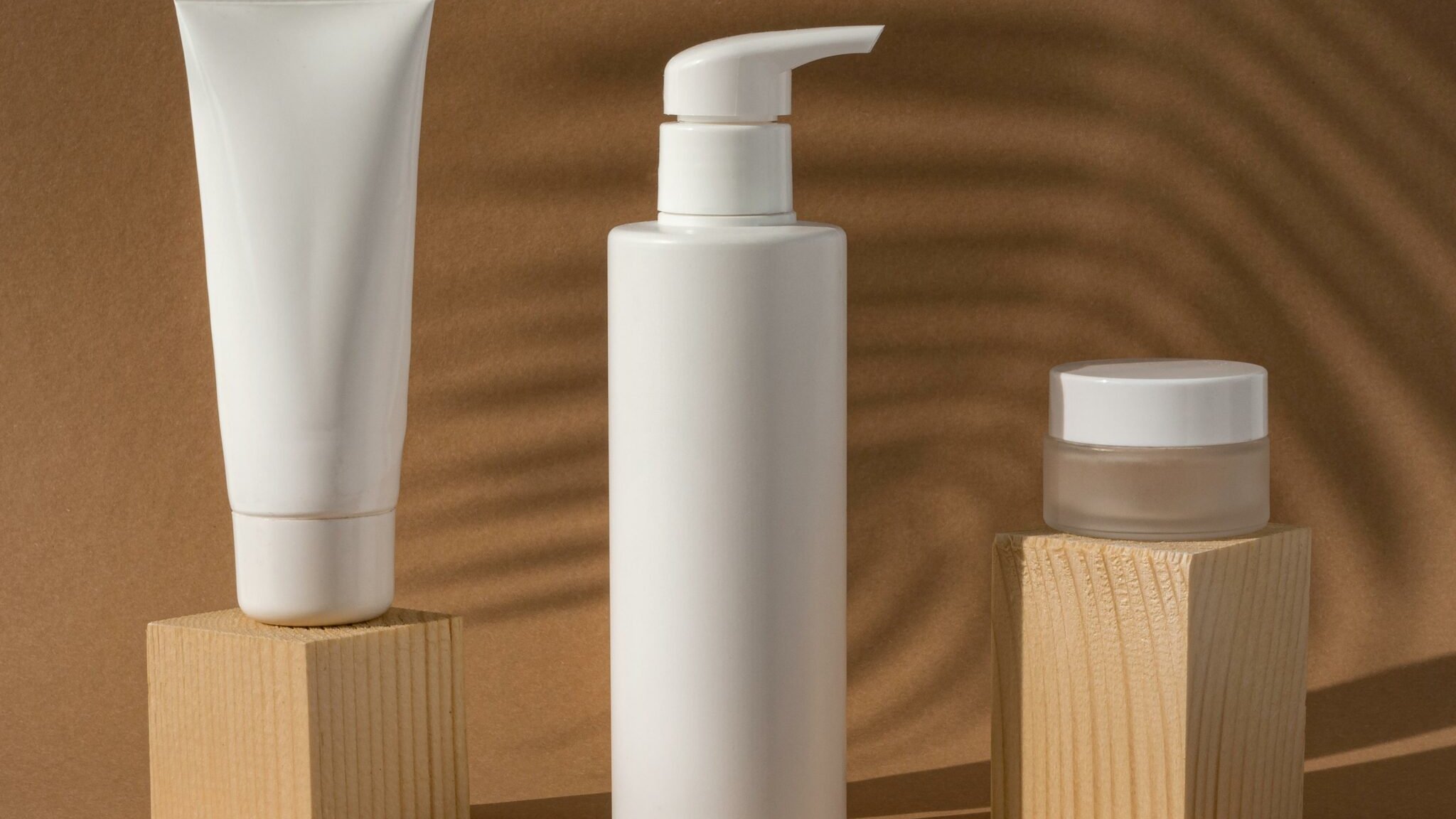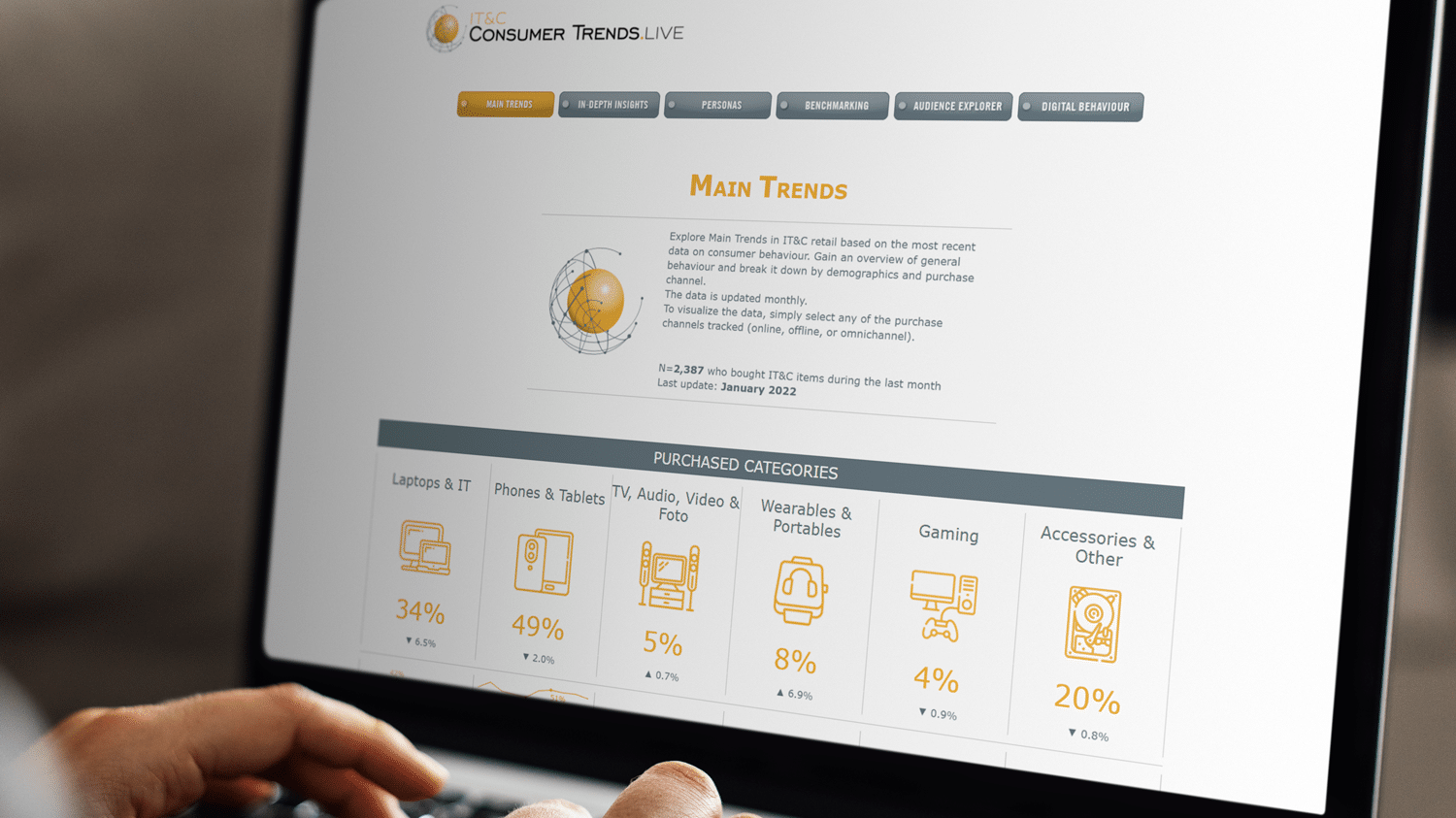Sustainability has become an increasingly important factor in Romanians’ purchasing decisions. The MKOR study, “The Ethical Consumer in Romania 2025,” analyzes both consumption habits and the barriers that prevent people from adopting a responsible lifestyle.
The ethical consumer segment continues to grow, while those who remain undecided still represent a market with high potential.
43% of consumers have ethical concerns that promote sustainability, with a stronger presence among women, Millennials, Gen X, and parents with young children.
The Ethical Consumer in 2025 (CE2025) builds upon the methodological approach developed in three previous MKOR studies: The Ethical Consumer in 2024, Ethical Consumer Behavior (2022), and Retail Trends for the Ethical Consumer (2021).
Content
We are observing a real shift in Romanian consumer behavior, where sustainability is no longer seen as just a trend but as a conscious choice. The 22% increase in eco-friendly food purchases shows that more and more Romanians are ready to take action. However, for this segment to continue growing, brands need to provide transparency, accessibility, and education.
Those who understand these needs benefit from a significant competitive edge, and we are already seeing brands whose communication campaigns are focused exclusively on sustainability and corporate responsibility.
Cori Cimpoca – MKOR Founder

Eco Generation: Who Are the Romanians Choosing Sustainability?
Who is the ethical consumer, and why is it important to analyze them?
An ethical consumer chooses eco-friendly products that reflect their values of fairness and solidarity. They avoid brands associated with unethical practices, such as child labor. In day-to-day life, they reduce their environmental impact by recycling, minimizing food waste, and opting for alternatives to personal transportation.
The profile of the ethical consumer in Romania is predominantly female (63%), and nearly half (47%) are parents. On average, they are 40 years old, fall into the middle-income category (44%), and have a high level of education, with over half (56%) holding a university degree. Most (75%) live in urban areas, where access to sustainable products is more convenient.
Romanian consumers are increasingly receptive to sustainable practices, and companies that embrace transparency and provide accessible solutions stand to earn their loyalty. By combining competitive pricing, education, and innovation in sustainable products, brands can capitalize on this growing trend.
A rising number of Romanians are interested in a sustainable lifestyle and in choosing ethical products, showing an upward trend in responsible consumption. However, there remains a significant segment of consumers (53%) who have yet to make a clear decision in this direction.
These undecided consumers are open to more sustainable alternatives but may lack sufficient information or be influenced by factors such as price or product accessibility. For brands, these individuals represent a major opportunity to educate and attract by offering relevant data that can guide them toward more responsible choices.

What Are Sustainability-Conscious Romanians Putting in Their Shopping Carts? Consumption Behaviors and Preferences
- 61% of ethical consumers purchase food products. This figure has risen by 22% recently, indicating a growing interest in responsibly sourced food.
- 36% purchase home care and household products that help maintain a clean, healthy living space while also being eco-friendly. These may include ecological detergents, biodegradable cleaning supplies, or home-care solutions designed to reduce environmental impact.
- 34% purchase cosmetics and personal care products made with natural ingredients and not tested on animals. This category has grown by 25%, reflecting a stronger tendency to choose personal care items that benefit both individual health and environmental protection.
Get Full Access: Download the report “The Ethical Consumer in Romania 2025” – and discover the study’s results for free

Although interest in sustainable products is on the rise, only 24% of consumers choose to purchase clothing, accessories, or footwear made from organic or recycled materials. This relatively low percentage may still indicate a barrier in terms of accessibility or pricing for sustainable fashion compared to traditional options.
Overall, ethical consumers are becoming increasingly aware of the impact their choices have on both the environment and their health. However, there are still sectors—such as fashion—where progress is taking place at a slower pace.

Free Access: Download the “Ethical Consumer in Romania 2025” Report – Discover the Study’s Findings
The Ethical Consumer is more mindful about their food choices and strives to avoid impulsive decisions. Over half (55%) try to balance healthy eating with life’s small pleasures, a figure that has increased by 8% (to 18%) since last year. However, only 17% report consistently prioritizing nutritious foods on a daily basis, suggesting that this habit is still in its early stages.
Meanwhile, 29% of consumers consider home-grown produce a priority—a growth of 18% from the previous year. Another 14% have started dining out less frequently, while 3% have increased their frequency of dining out (+3%).
Ethical consumers also tend to be more optimistic about their health: 61% say they do not feel ill or fatigued, compared to only 4 in 10 consumers outside this segment who share that sentiment.
On average, household spending rose by 5.7% from the previous year, an increase of 0.6 percentage points compared to the previous quarter.
The Ethical Consumer Chooses To:
- Eat more fruits and vegetables – 40%
- Cook with fresh ingredients – 36% (a 10% increase from last year)
- Reduce fat intake – 30% (up by 10% compared to last year)
- Include nuts and seeds in their diet – 22%
- Consume whole-grain products – 14%
- Opt for products without certain additives – 12%
For ethical consumers, adopting a balanced, sustainable lifestyle involves being mindful of both their personal health and the environment. Their choices reflect a desire to limit excesses, avoid waste, and prioritize nutrient-rich foods.
- Reducing food waste is a key concern, with 13% saying they purchase products close to their expiration date to prevent them from going to waste.
- Recycling is on the rise (75%), a trend expected to accelerate with the nationwide rollout of the Deposit-Return System in November 2023. Consumers have begun changing their shopping habits, driven by lower costs and an increased focus on reducing environmental impact.
- Reusing plastic and glass containers for household purposes is becoming more common.
- Avoiding plastic packaging has grown by 17% (compared to 16% last year), while the use of reusable textile bags has climbed to 43%. In fact, many Romanians now take pride in choosing glass bottles over plastic (thanks to the deposit-return system).
Free Access: Download the “Ethical Consumer in Romania 2025” Report – and discover how to create unique brand differentiators for this segment.

Only 1 in 2 Romanians Trust Eco Labels. How Does Skepticism Affect the Future of Sustainability? Barriers, Opportunities, and Trends
Price remains a significant barrier to adopting responsible consumption habits, especially when it comes to brands with higher price points.
This is partly due to the “normalization” of eco-product pricing, which has become increasingly expensive. Despite the heightened interest in sustainability, many Romanians are hesitant to invest in costly products without being certain they truly benefit the environment.
Another factor is the perceived lack of long-term benefits from these products, such as their reduced impact on health or the planet. Because many consumers are not convinced they will see immediate or short-term results, they remain reluctant to pay a premium.
In addition, many consumers simply do not know how to identify a sustainable product. This lack of education or knowledge leads to purchase decisions driven by other factors, such as price or brand reputation. Consequently, many Romanians remain skeptical about eco labels, viewing them as mere marketing tools.
However, there is a silver lining: skepticism stems more from a distrust of brands than from a lack of interest in environmental issues. For companies looking to capture this segment, investing in education, transparent communication, and recognized certifications is crucial.
Another challenge affecting consumer interest in sustainable products is limited availability in certain regions, as well as a shortage of financially accessible alternatives. Although interest is on the rise, the local market has not yet reached full maturity.
In conclusion, to overcome price barriers and skepticism, brands must focus on informing consumers and offering products with a competitive price-to-quality ratio. Long-term benefits, such as reducing environmental impact, can serve as a key differentiator.
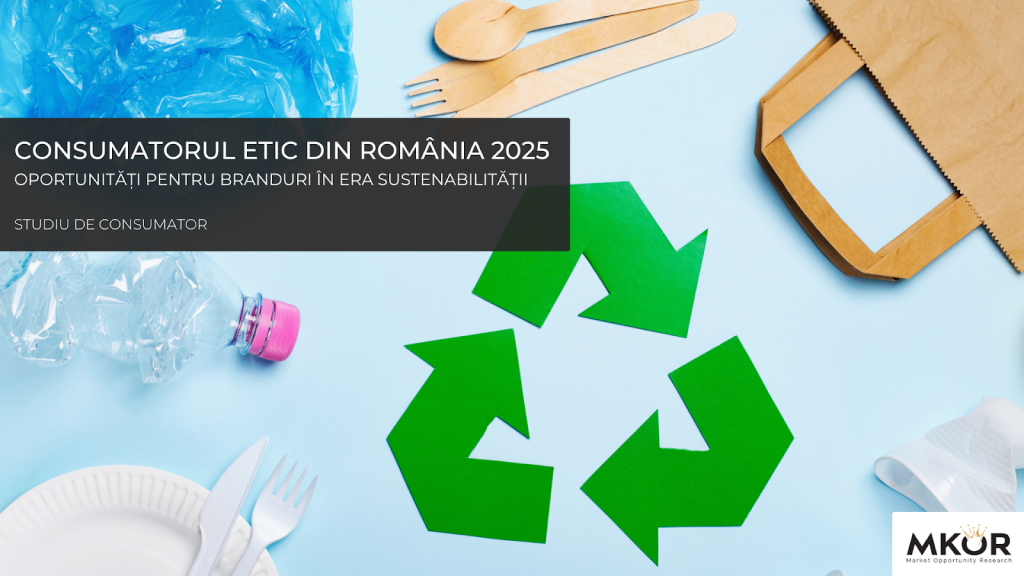
Free Access: Download the “Ethical Consumer in Romania 2025” Report – and discover the study’s findings
Promoting the idea that locally sourced foods are both healthier and more environmentally friendly can help consumers make more informed choices. Moreover, a growing number of shoppers are actively looking into product origins and how those products were made. These expectations create opportunities for brands that demonstrate responsible behavior.
Companies can attract more customers by expanding their range of sustainable products, whether by launching “zero waste” items or reusable packaging solutions. There is also a notable rise in interest around reducing food waste. Brands that emphasize circularity and transparency will gain a clear advantage over their competitors.
Investing in eco-friendly alternatives to plastic is another way for brands to stand out. For example, smaller businesses have started packaging more products in edible or compostable materials. Meanwhile, we can expect to see an increase in zero-impact household cleaning products, as consumers grow more concerned about the potential health risks posed by chemical agents.
Ethical consumers are more inclined to purchase from familiar, trusted brands—28% say they rely on brands they know and trust.

Non-ethical consumers are increasingly attentive to the lack of details regarding product origins and their environmental impact.
According to our study, the ethical consumer segment has grown slightly, but there remains a substantial market of undecided consumers. While price remains a barrier, its influence is gradually diminishing. At the same time, skepticism toward eco labels has risen due to uncertainty in brands’ sustainability messaging.
Cori Cimpoca, founder of MKOR, presented the findings of the “Ethical Consumer in Romania 2025” study at the Green Your Future 2025 event. Her presentation focused on providing valuable insights into the responsible consumption market and highlighting new opportunities for brands to implement sustainability strategies.
Free Access: Download the “Ethical Consumer in Romania 2025” Report – and discover the study’s findings
Research Information
- Sample Size: N=1000
- Sample Characteristics: Nationally representative by gender, age, and geographic distribution
- Target: The general Romanian population, aged 18 to 55
- Research Method: Opinion survey (CAWI)
- Approach: Online, via MKOR’s Consumer Panel
At MKOR, we offer comprehensive market research support. We provide insights into the Romanian market and various industries, analyzing customer perceptions, consumer behaviors, and competitor activity.
Visit our Services section to learn more about the types of research we conduct. If you’d like to explore how we can help you better understand your audience or gain a competitive edge, don’t hesitate to contact us—we’re here to guide your business forward.
Have you read everything? Comment / join our newsletter / read our other research posts!
Urban Millennial Moms Are the Face of the Ethical Consumer Profile in Romania
April 19, 2024
0 Comments16 Minutes
MKOR Consumer Sentiment Study: Principal Reasons for Romanian Concerns in 2023
April 16, 2024
0 Comments8 Minutes
4 in 10 Romanians purchased perfumes to celebrate the holidays dedicated to women
August 12, 2022
0 Comments7 Minutes
